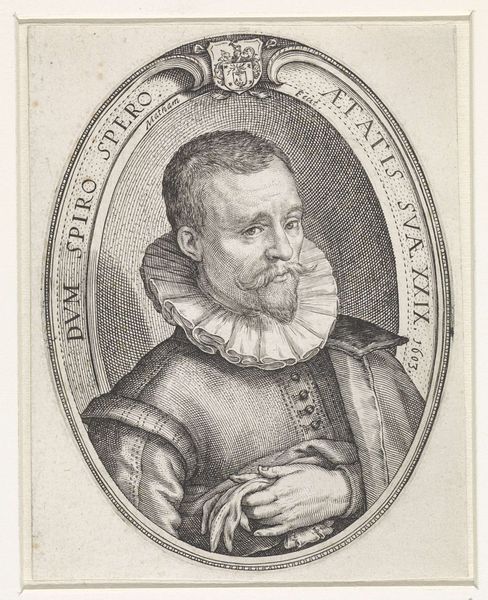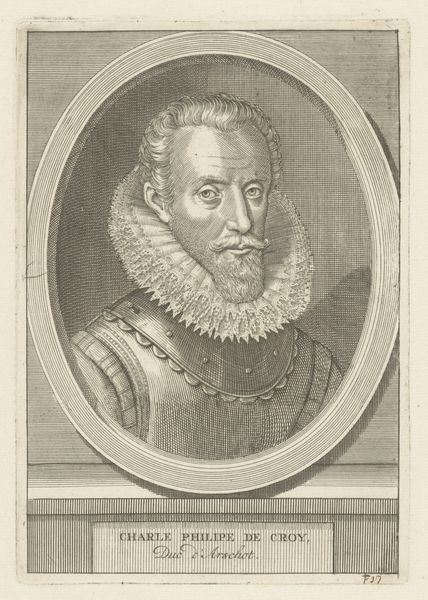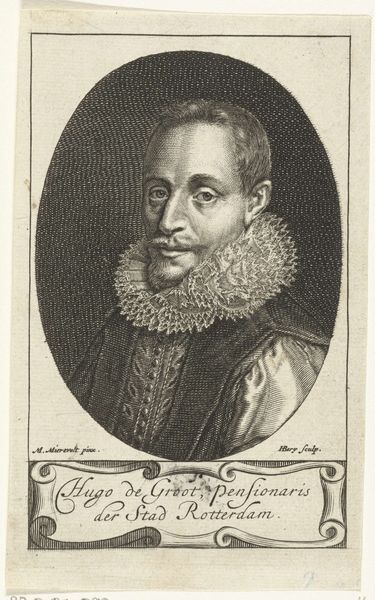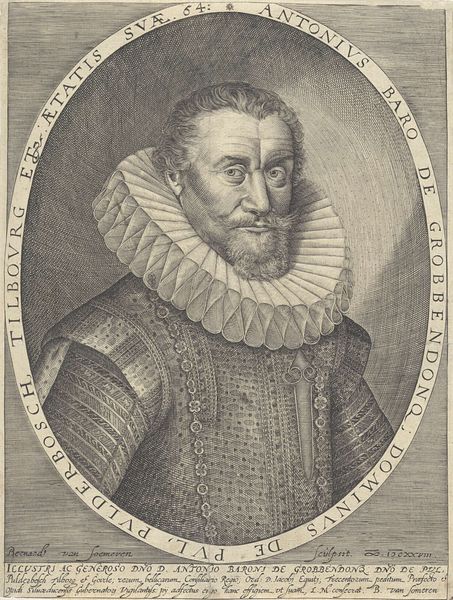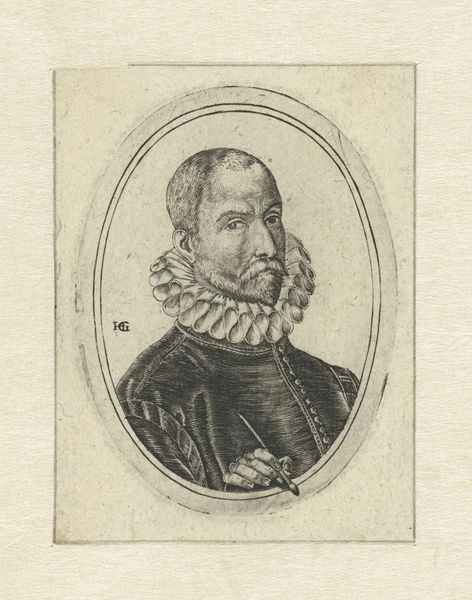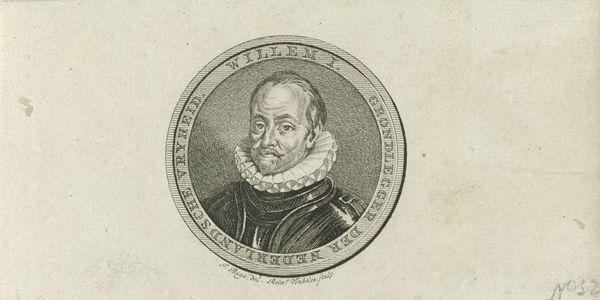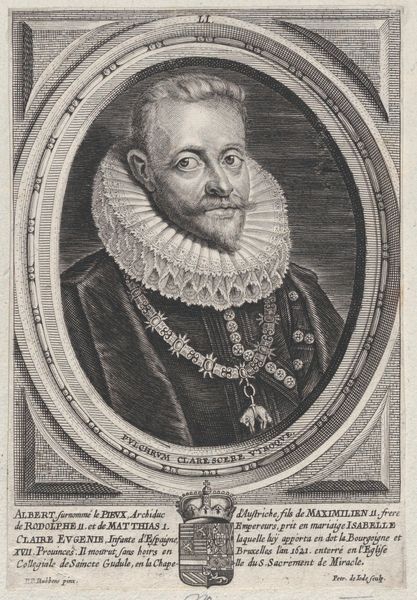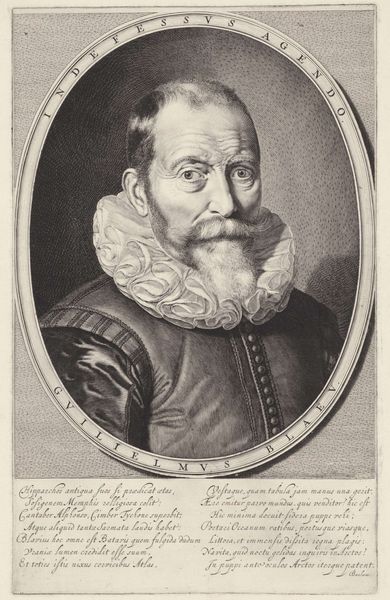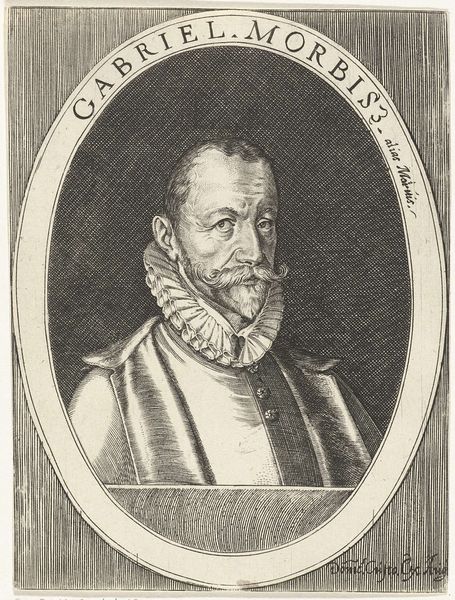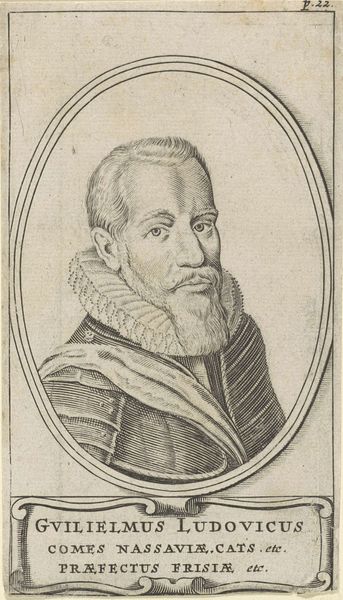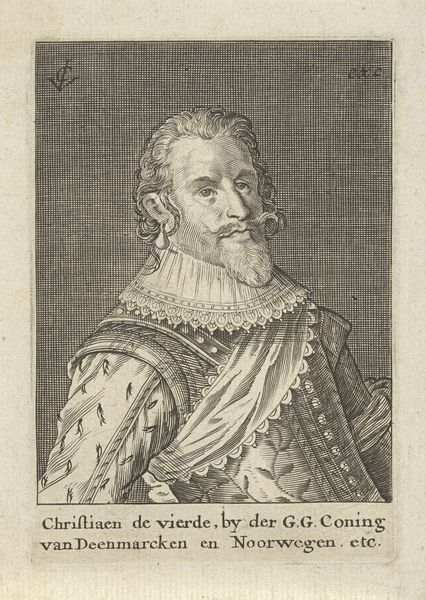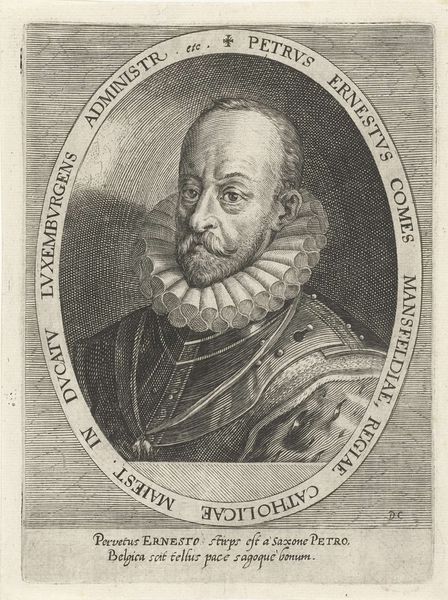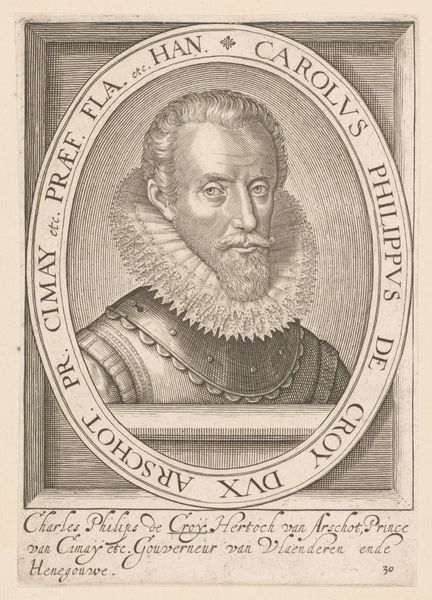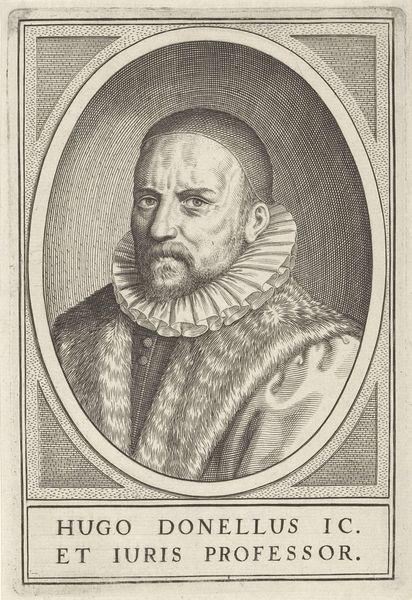
print, engraving
#
portrait
# print
#
old engraving style
#
caricature
#
figuration
#
line
#
portrait drawing
#
northern-renaissance
#
engraving
Copyright: Rijks Museum: Open Domain
Editor: This is a portrait of Willem I, Prince of Orange, an engraving from 1603. I find the sheer density of the lines used to create the shading fascinating. How does this print function within its historical context? Curator: Consider the labor involved in producing this engraving. Each line meticulously carved into the printing plate. These aren’t spontaneous gestures but careful, deliberate marks. This print, replicated numerous times, disseminated a particular image of power. Who consumed these images and where were they displayed? This reproduction facilitated broader access to Willem’s likeness and amplified the visual rhetoric of leadership during a tumultuous era. Editor: So, it's not just the artistic skill but the act of mass production that's significant? Was there anything uniquely Dutch about how printmaking was used at the time? Curator: Precisely. Think about the materials—the paper, the ink, the metal plate. Where did these resources originate? Who controlled their distribution? The materiality of this print speaks to global trade networks. The Dutch Golden Age relied heavily on these commercial structures and printmaking, alongside textile production, allowed for the widespread communication of ideas. Can this portrait be understood as propaganda that would've shaped the cultural memory of the revolution against the Spanish crown? Editor: Definitely! It served to solidify Willem's image as a national hero. I had focused mainly on it as an artwork, but the mass production and consumption angles completely change my understanding. Curator: Exactly. Analyzing its material production deepens our understanding. It isn't solely an aesthetic object but also a commodity embedded within a specific historical and social context. We’ve looked beyond the mere surface to uncover the underlying conditions of its creation and consumption, understanding that these greatly affect its impact.
Comments
No comments
Be the first to comment and join the conversation on the ultimate creative platform.
